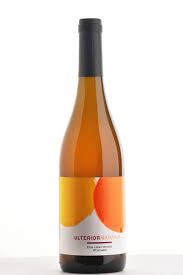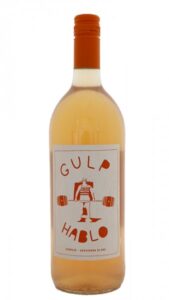
Orange Wine
Explore our selection of orange wines, crafted through extended skin contact with white grapes, yielding a robust, complex flavor profile. Perfect for adventurous palates seeking depth and a unique twist on traditional white wines.
Browse All
Filters
What Drink?
What Country?
What Style/ Variety?
What Size?
Alc. by Vol. Range
Price Range
Customer Ratings
Reset Filters
Add to favoriteRemove from Wishlist
Add to favorite
Add to favoriteRemove from Wishlist
Add to favorite
Add to favoriteRemove from Wishlist
Add to favorite
Add to favoriteRemove from Wishlist
Add to favorite
Details
Origin and history
Orange wine, also known as skin-contact or amber wine, has a rich history dating back thousands of years in ancient Georgia, around 6000 BC. Unlike typical white wines, orange wine is made by fermenting the juice of white grapes with their skins, seeds, and sometimes stems, a process more common in red wine production. This technique imparts a distinctive deep orange hue and a robust flavor profile with a tannic structure. Traditionally cherished in Eastern Europe, orange wine has experienced a global resurgence, appealing to adventurous wine enthusiasts seeking unique and complex flavors. It’s celebrated for its natural winemaking approach and versatility in pairing with a wide range of cuisines.
Flavor profile
Orange wine, often referred to as “skin-contact white wine,” offers a unique and captivating flavor profile that intrigues both novice and seasoned wine enthusiasts. Unlike traditional white wines, orange wines are made by fermenting the juice of white grapes with their skins, resulting in a deep, rich color and a robust flavor spectrum. Expect a bold amalgamation of fruity, nutty, and earthy tones, with a notable tannic structure similar to red wines. Common tasting notes include dried orange peel, apricot, honey, almond, and a hint of spice. This wine pairs excellently with a variety of dishes, enhancing complex flavors and textures.
Serving suggestion
Explore the unique profile of orange wine, best served chilled at 8-12°C. Pair it with bold, aromatic dishes like Moroccan tagine, Korean BBQ, or aged cheeses to enhance its complex flavors. Ideal for adventurous palates, orange wine also complements spicy foods and hearty vegetable dishes like roasted root vegetables. Enjoy it in a wide-brimmed glass to fully appreciate its rich aromas. Perfect for those looking to explore beyond traditional white wines.
Food Pairings
Orange wine, with its robust profile and tannic structure, pairs excellently with bold, rich dishes. Ideal companions include smoked meats, hearty seafood like grilled octopus, and ethnic cuisines such as Ethiopian or Korean, which offer a mix of spices and textures. Its nutty and honeyed notes also complement hard cheeses and charcuterie. For vegetarians, try pairing with dishes featuring earthy elements like mushrooms or squash. Orange wine’s unique flavor also stands up well against spicy foods, making it a versatile choice for diverse culinary explorations.
Frequently Asked Questions
Why should I buy orange wine from Purdy's Discount Wine & Liquor?
Discover the unique allure of orange wine from Purdy’s Wine, where tradition meets innovation. Our carefully curated selection features robust flavors and aromatic complexity, derived from extended skin contact with white grapes. Perfect for adventurous palates, each bottle offers a distinct, rich taste that pairs wonderfully with a variety of cuisines. Choose Purdy’s Wine for an exceptional orange wine experience that highlights quality, craftsmanship, and a dedication to delighting wine enthusiasts.
What shipping options does Purdy’s Wines offer for orange wine?
Purdy’s Wines offers fast and reliable shipping options to ensure your orange wine arrives in perfect condition. We provide various shipping choices, including expedited and standard delivery, with secure packaging to protect your purchase. Plus, enjoy free shipping on orders over a certain amount, making it even more convenient to shop with us.
What is the difference between orange wine and regular white wine?
Orange wine and regular white wine differ primarily in their production methods. Orange wine is made from white wine grapes where the grape skins are left in contact with the juice during fermentation, a process similar to that used for red wines. This skin contact can last from a few days to several months, imparting a deep orange or amber hue to the wine, along with a robust flavor profile that includes nutty, fruity, and honeyed notes. It also typically has a higher tannin content than white wine.
In contrast, regular white wine is produced by fermenting the juice of white grapes without the skins. This results in a lighter color, ranging from pale yellow to greenish hues, and a flavor profile that tends to be fresher, crisper, and more delicate compared to orange wine. White wines are generally more acidic and have less tannin than orange wines.
How should I store my orange wine?
Store orange wine in a cool, dark place at a consistent temperature between 45-65°F. Keep the bottles on their sides to maintain cork moisture, and avoid areas with vibrations or strong odors. Consume within a few years of bottling for optimal freshness.
What are some popular ways to enjoy orange wine?
Orange wine, a unique type of white wine made by fermenting the juice with the grape skins, offers a robust flavor profile that pairs excellently with bold, rich dishes like curry, Ethiopian cuisine, or aged cheeses. Enjoy it chilled to enhance its complex characteristics. It’s also a great addition to wine tastings for a surprising twist, allowing connoisseurs and casual drinkers alike to explore its distinct, tannic texture and deep, amber hue. For a creative use, incorporate orange wine into vinaigrettes or marinades to add an unexpected depth of flavor to your culinary creations.
Browse Related Categories
Parties start at Purdy's! Contact us before your next event so we can help you plan your menu or drink list.





